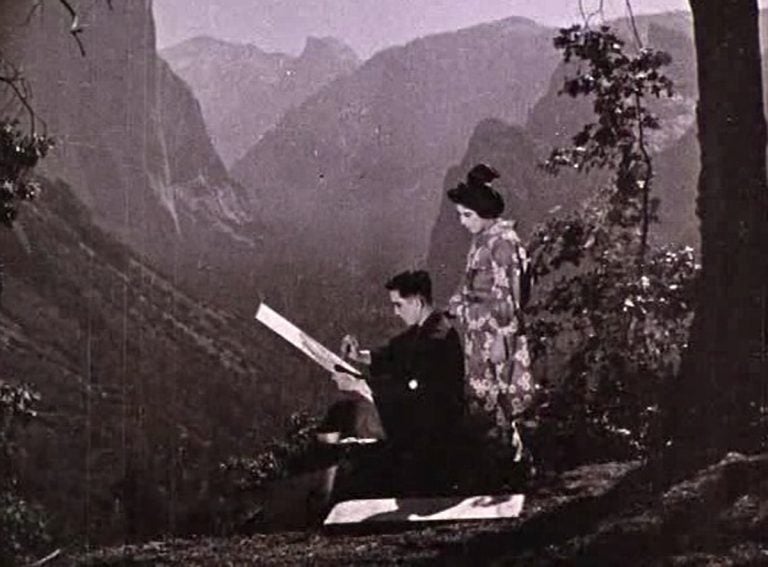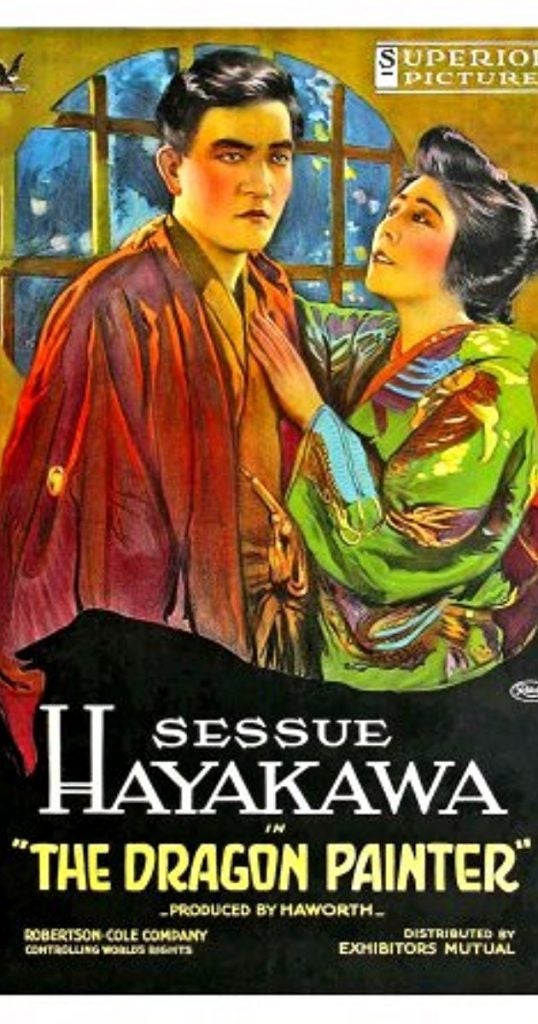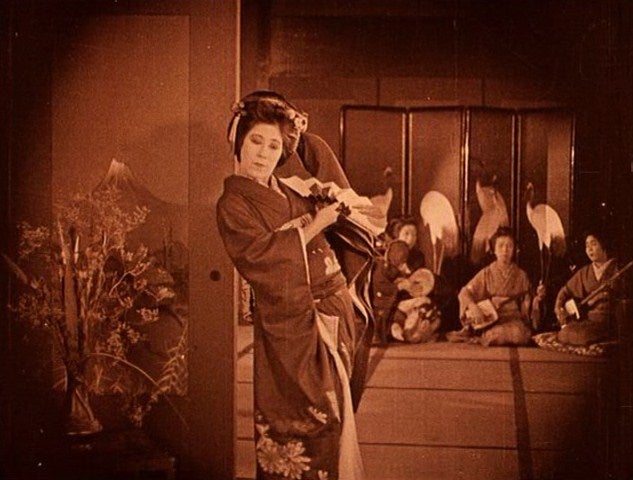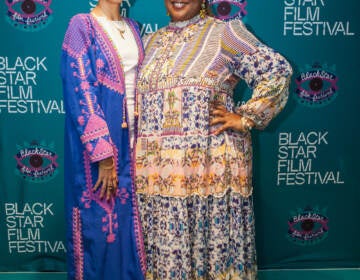Philly Asian American Film Festival brings attention to forgotten star of silent movies
The 10th annual Philadelphia Asian American Film Festival opens with "The Dragon Painter," a silent film with live indie pop score.

Sessue Hayakawa and Tsuru Aoki in "The Dragon Painter" (1919) (Asian American Film Festival)
As the Philadelphia Asian American Film Festival begins its 10th year, it will present 40 feature films and another 40 short films over 11 days.
Most are new, contemporary films, but this year the festival is paying particular attention to Asian-American groundbreakers in Hollywood. The opening event is a rare screening of “The Dragon Painter,” a silent film made almost a century ago starring Sessue Hayakawa.

You might not recognize that name now, but, in his day, he was huge.
“He was the first male sex symbol,” said festival director Rob Buscher. “He was associated with a dangerous foreign element, which the white women audiences really clamored for. He predates Rudolph Valentino, as the dangerous Latin lover. Hayakawa was the forbidden Japanese lover.”
Hayakawa grew up in what is now Minamibōsō on the Chiba Peninsula, near Tokyo. His parents pushed him toward a military career, but a ruptured eardrum disqualified him for combat service, a shame that caused the teenaged Hayakawa to attempt suicide.
He later traveled to the University of Chicago to study economics. There, he excelled as an athlete. After graduation he began to make his way back to Japan but was waylaid in Los Angeles, where he caught the acting bug.
He eventually became a marquee name, one of early silent film’s biggest stars. In 1915 — after the success of Cecil B. DeMille’s “The Cheat,” wherein Hayakawa played a wealthy, manipulative suitor of a married woman — he became one of the highest-paid actors in Hollywood.
In 1918, Hayakawa started his own production company, Hayworth Pictures. He produced 22 films, all starring himself. “The Dragon Painter” is one of the very few that survive. It was recently restored by the Eastman House in New York.
His films, however, did not play well in his native Japan because his characters often played up Japanese stereotypes.
“He ended up finding himself in a position where he wasn’t Japanese enough for Japan, and not American enough for America,” said Buscher. “Sadly, a lot of Asian-Americans can still relate to that.”
When Buscher began researching Hayakawa about a year ago to program the film festival, he discovered that even people on the Asian-American film circuit had never heard of him. His star faded with his looks, although he did have a role in David Lean’s Oscar-winning film, “Bridge on the River Kwai,” playing the brutal Japanese commander of a World War II POW camp.
Hayakawa’s off-screen life was perhaps more turbulent than that on-screen. From a suicidal teenager to the toast of Hollywood, he married his on-screen love interest from “The Dragon Painter,” Tsuro Aoki, but fathered a child with a mistress. He and Aoki would later adopt the child.

He abandoned his Hollywood career, bouncing around Europe and Japan on acting gigs, sometimes supporting himself by selling watercolors.
“One of my favorite stories — during World War II, he was in France when it was overrun by the Nazis. So he ended up spending World War II fighting the Nazis as part of the French Resistance,” said Buscher.
As the opening night film of the Asian American Film Festival, “The Dragon Painter” will be presented with a new score composed and performed live by Goh Nakamura, a Japanese-American indie pop songwriter based in San Francisco.
Nakamura has put out several albums under his own name, and contributed soundtracks to a handful of Ridley Scott films. Performing solo, occasionally accompanied by prerecorded tracks, he will play a variety of instruments including electric guitar, vibes, and the taishogoto, — a Japanese harp.
“It’s sort of all over the place,” admitted Nakamura.
While composing for the film, Nakamura discovered Hayakawa was unique among silent film actors, who often tend to overact in order get their point across without language. Instead, Hayakawa was subtle, acting with his eyes.
“It’s a different game. A lot of it is in his face,” said Nakamura. “It’s incredible. He totally makes the movie.”
The festival had been searching for a project that would bring Nakamura to Philadelphia, and “The Dragon Painter” fit the bill.
“Considering this is a 100-year-old film he wanted to make it relevant again,” said Buscher. “Doing an unorthodox music choice for the soundtrack is going to do just that.”
The Asian American Film Festival is hoping to bring back the legacy of Hayakawa, who faced the same cultural stereotypes a century ago that many Asian-Americans deal with today.
WHYY is your source for fact-based, in-depth journalism and information. As a nonprofit organization, we rely on financial support from readers like you. Please give today.





